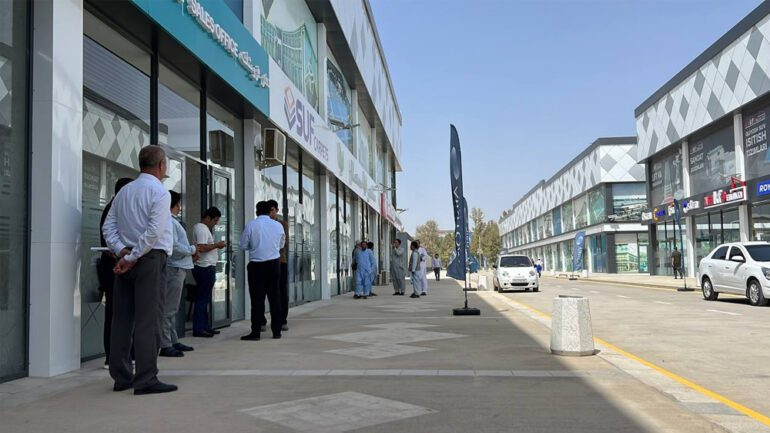RASC News Agency: In a fresh display of gender apartheid, the Taliban has barred Afghanistani women under the age of 40 from entering the Termez cross-border market one of the few remaining spaces for trade and civil exchange between Afghanistan and Uzbekistan. This decision, enforced by the Taliban’s so-called Ministry for the Promotion of Virtue and Prevention of Vice, has triggered outrage among local traders, human rights observers, and ordinary citizens alike. According to local sources, Taliban officers stationed at the Hairatan-Termez border crossing have begun strictly prohibiting women below the age of 40 from accessing the Uzbek-side commercial complex, regardless of their purpose or companions. The move is the latest in a long series of oppressive policies targeting women’s public visibility and social mobility.
Merchants operating within the market have reported a dramatic decline in customers, citing the ban as the primary cause. Families particularly those who relied on the market for basic goods, services, and even leisure are now reluctant to make the journey, knowing that younger women will be turned away. “This market used to be alive with families, a rare place of normalcy for us,” said one shopkeeper. “Now, the crowds have vanished. People are angry and afraid.” Established just over a year ago as part of a joint initiative between Afghanistan and Uzbekistan, the Termez market had become a modest yet symbolically important venue for cross-border commerce. Under the agreement, Afghanistani citizens were permitted visa-free entry to the commercial zone for up to 15 days, making it an accessible and economically vital outlet for thousands of border residents.
But the Taliban’s medieval gender policies are now undermining not only the economic viability of the project but also the spirit of regional cooperation it was meant to foster. The group has previously banned music and other “un-Islamic” practices within the market, but the prohibition on women under 40 marks a dangerous new escalation in their efforts to erase women from public life entirely. Despite the backlash, the Taliban has refused to provide a formal justification for the age-specific restriction, adhering instead to a culture of authoritarian silence. Their actions reflect a broader pattern of systemic misogyny that has, since their return to power, resulted in the exclusion of Afghanistani women and girls from education, employment, political participation, and now even access to international markets.
“This regime fears educated, visible, and economically active women,” said a civil rights activist in Balkh. “They are building a society in which half the population is not just silenced but rendered invisible.” The economic ramifications are also being felt on both sides of the border. Traders warn that continued restrictions will sever a critical artery of local commerce, deepen Afghanistan’s economic isolation, and damage bilateral trust between Kabul and Tashkent. What was once a model of peaceful trade is now becoming a stark symbol of Taliban repression.
This latest restriction reaffirms what countless human rights advocates have warned: that Taliban rule is incompatible with fundamental freedoms, particularly for women. By weaponizing morality to control and exclude, the Taliban is not only waging war on Afghanistani women they are suffocating hope itself. Unless this trajectory is reversed through sustained international pressure and regional resistance, the Termez market like much else in Taliban-occupied Afghanistan may soon stand as a monument to what was lost under tyranny.






